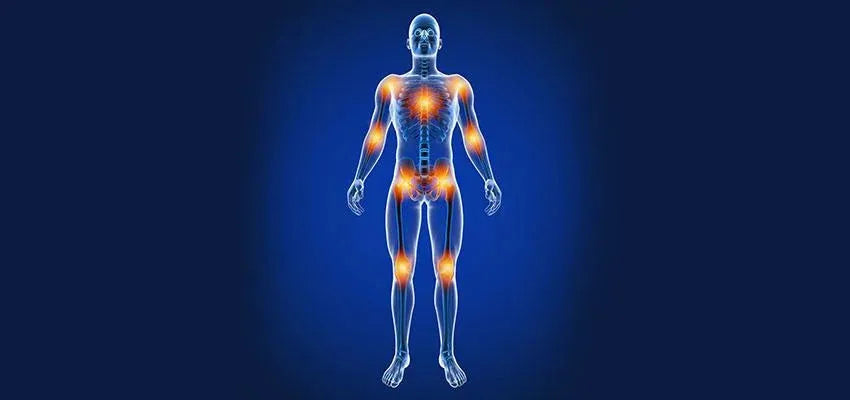
Does your Gut Health decline with age?
Aging is the natural process of becoming older. Age-related changes in the gut microbiota is influenced by individual characteristics, such as physiological changes that occur over time, as well as life-style factors, such as diet, medications, and social interactions. The individual’s immune system, metabolism, and neurological (brain) system are all affected by the gutmicrobiome, which also modifies the risk of various age-related illnesses like obesity, hypertension, arthritis (joint pains) and diabetes.
Signs of aging include:
Change in facial contour, loss of fat underneath the cheeks and eyes, dehydrated skin, uneven skin tones such as age spots, dark circles, thin lips and down-turned mouth, pale/ grey Skin, presence of grey hair, wrinkles and fine lines are the signs of aging.
Gut microbiota
Gut microbiota is the presence of billions of microbes such as bacteria (Firmicutes, Bacteroidetes, Actinobacteria, Proteobacteria, Fusobacteria, and Verrucomicrobia), protozoa (Giardia intestinalis, Entamoeba histolytica, Cyclospora cayetanensis, and Cryptosporidium), viruses (influenza) and fungi (Cladosporium, Aspergillus, and Penicillium) in the gastrointestinal tract (GIT) of humans. The microbiome is the environment where microbes live. Most microbes in the body are essential for normal health, but they may become harmful when they outgrow their usual numbers.
Functions of gut microbiota
The gut microbiota plays a role in:
- Helps in the digestion of food
- Synthesis of vitamin K
- Metabolism of Xenobiotics(drugs)
- Preservation of structural integrity of the gut mucosal barrier
- Immunomodulation (change in the body’s immune system)
- Pathogen defence (fights against foreign organisms)
Gut microbiota and aging:
The gut microbiota is essential for maintaining the health and equilibrium of an individual throughout life because it influences brain functions and controls behaviour as people age.
With age, the human gut microbiota alters. Older people may experience increased constipation as a result of structural changes in the intestine brought about by aging. Lack of exercise, dehydration, and a low-fibre diet are other risk factors. Constipation may also be caused by drugs, such as diuretics and iron supplements, and diseases such as diabetes. Sarcopenia (age- related loss of muscle mass and strength), changes in cognitive function, and innate immunity that come with ageing are all signs of weakness that may be influenced by the gut microbiota.
Gut microbiota as a modulator of healthy aging
Various studies signify the link between human gut and aging is beneficial to the individual. Studies also demonstrated that the need for healthy gut microbiota for human development at every age, and that changes in physiological processes associated with aging can have an impact on the (individual’s body composition and functioning.) The composition and metabolic activities of the gut microbiota vary greatly in the first two to three years of individual’s life. With age, the gut microbiota undergoes various changes. However, the decline in the number of helpful species (such as Bifidobacterium) in the gut microbiota that results from the loss of physiological functioning in old age promotes a number of gut-related disorders, such as inflammatory bowel disease. Probiotics/prebiotics and plant-based diets may increase the number of beneficial species and prevent disorders related to the gut.
Diseases associated with gut microbiota
Several studies have shown that the following metabolic and inflammatory conditions have been linked with microbiota alterations.
- Obesity (by affecting appetite, energy absorption, and fat storage)
- Inflammatory bowel disease (by altering colonization and invasion of pathogens)
- Irritable bowel syndrome (by influencing abnormal levels of gut bacteria)
- Type 1 and type 2 diabetes (by decreasing glucose tolerance and insulin resistance)
- Atherosclerosis (by altering butyrate, a type of fatty acid, levels)
- Allergies ( by altering the histamine levels)
- Autism (by producing excessive propionates)
- Brain disorders like depression, Alzheimer's disease, and brain stroke
Role of gut microbiota in immunity
The induction, development, and regulation of the host immune system are fundamentally influenced by the microbiota. The immune system has largely developed as a way for the host to maintain its symbiotic relationship with these extremely diverse and constantly changing microbes. This immune system microbiota, when functioning at its best, enables the production of protective responses against pathogens and the preservation of regulatory pathways involved in the maintenance of harmless antigens. Immunosenescence, which can be characterised as a reduction in immune system performance is one of aging’s most detrimental effects and can result in a persistent state of low-grade inflammation in the gut. Therefore, immunosenescence may result in unfavourable modifications to the composition and organisation of the gut microbiota in older individuals.
Age-related changes in gut microbiota
From the time of birth, microbes begin to colonise the gut and reach maturity during the first two years of life. It is believed that the gut microbiota maintains a stable structure throughout adulthood but adapts to changes as we age. Recent studies have shown a prominent relationship between aging and gut flora. The majority of studies have examined variance in the gut microbiota at various individuals’ age. Personal factors, such as increasing physiological decline, as well as lifestyle-related factors, such as nutrition, medication, and decreased social contact, have an impact on age-related changes in the gut microbiota.
Age-related diseases and disabilities are more likely to affect those who are older. Numerous bacteria live in the human gastrointestinal system and contribute to the host's metabolic characteristics. Increased abundance of Gram-negative bacteria, such as Enterobacteriaceae and other pathogens, is one of the worst consequences of age-related alterations in the gut microbiota. (Lipopolysaccharides, which these Gram-negative bacteria can secrete endotoxins (proteins) which may result in intestinal alterations like redness and swelling of the mucosal layers of intestine.) Aging can alter the gut microbiota in a variety of ways, including a decline in development and functions related to the gut. Thus, it is recommended to consult your healthcare professional to know more information about how aging can alter your gut microbiota.


